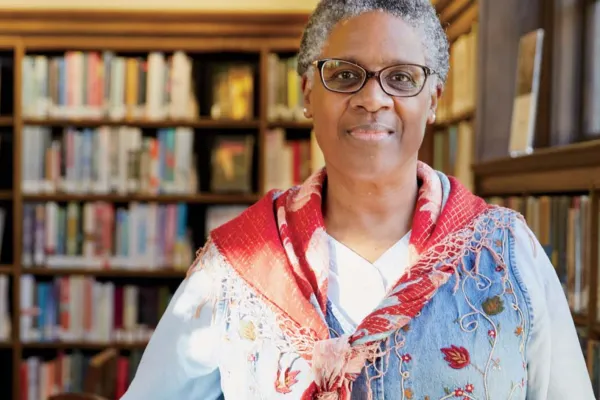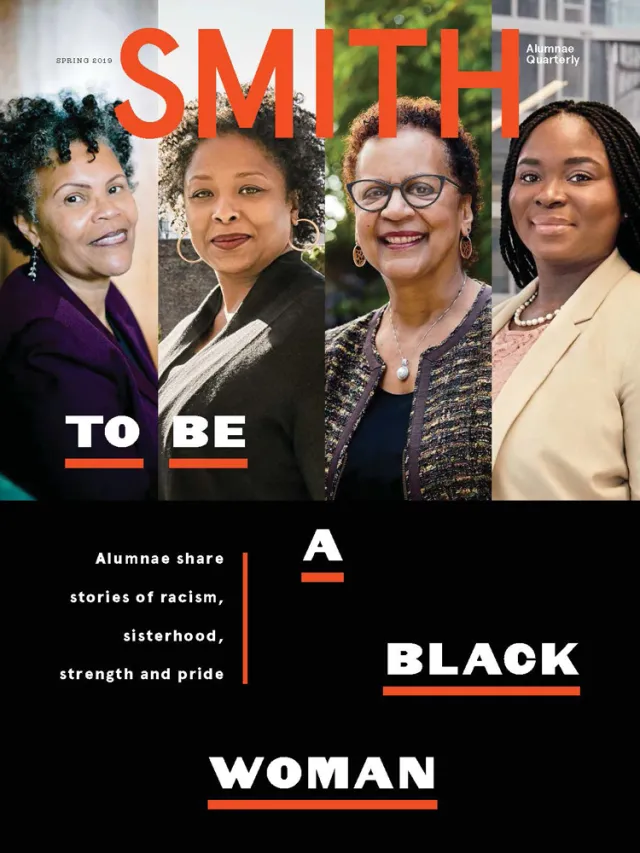‘Challenging The Status Quo By Writing My Truth’
Alum News

Published March 13, 2019
My first book of poetry was published last fall, two months before I turned 65. I’ve been writing poetry for over 30 years, and my poems have been published in literary magazines and performed with dancers. I’m happy that my poems have found a wider audience. I also write fiction, nonfiction, hybrid forms and a blog. I have a lot to say. When I write, I am free to spread out and explore what I want to say and what container I want to place my thoughts in. Often, I am propelled by a need to address something that rises up out of my experience
Not too long ago, there was a flurry of robberies in my neighborhood and our mayor and a city council member held a town hall meeting to address residents’ concerns. I encountered a neighbor who took it upon herself to question me when it was my turn to sign an email list the councilman was circulating. There were several of us standing around the table, waiting to sign the sheet, yet my neighbor chose to question only me, the only black person in line at the time. Later, on my blog, I tried to parse out the complexity of the interaction, work through my emotional reactions (frustration, indignance, annoyance) and make some sense of what I had experienced. This is some of what I wrote: “I turned the interaction around quickly. I answered Sharon [not her real name] in the affirmative, made sure to emphasize the longevity of my tenure in the neighborhood, and I then introduced myself by first name and asked for her name. Next, I handed the ‘Do you live in the neighborhood?’ question back to Sharon and stepped into the role of gatekeeper. Change in power differential through a double ward-off to Sharon, whose excuse, once she awakened somewhat from her trance of privilege and entitlement, was that some of the people at the meeting were business owners and not residents. I didn’t quite get the significance of that distinction, as I guessed that business owners probably were as interested in not becoming victims of armed robberies to the same degree that residents were not interested in becoming victims.
A few years before, I wrote a poem titled “What Do You See” about noticing a consistent reaction from women, mostly white, as I walked the streets of my neighborhood and the larger community. I’ve been walking these same streets for more than three decades. I am tall, with a statuesque build, and I walk at a good pace. It’s clear that these women are not really seeing me.
It’s hard for me to smile/as I watch them cringe. Their pupils dilate, bodies stiffen,
purses press tightly into breasts.
My breasts want to walk
from block to block,
iris to eucalyptus,
welcome to rest my thoughts in a garden,
on a corner.
I’m not interested in sirens, gleaming black metal,
911.
Writing my truth—what I see, feel, think and imagine—is the way I challenge the status quo and beliefs that convince some that I embody any of the stereotypes often placed on black women and many other people.
Through writing I am able to bolster and nurture myself and to sustain the knowledge I have of myself as whole. And it’s much stronger medicine than silence.
Joyce Young ’75 is a Brooklyn native now living in Northern California. She’s currently at work on a novel, Parallel Journey, and a series of essays about a decade of caring for her mother.
This story appears in the Spring 2019 issue of the Smith Alumnae Quarterly.

To Be a Black Woman: Alumnae Share Stories of Racism, Sisterhood, Strength and Pride
Deborah Archer ’93, “I’ve Picked a Lane. It’s Racial Justice.”
Billy Dean Thomas ’14, “I Felt Like I Was Being Tokenized”
Caroline Clark ’85, “I Am Not Black or a Woman. I’m a Black Woman”
Charlise Lyles ’81, “Who came to soothe my soul? All my Black sisters”
Lori Tharps ’94, “I Yearned for a Comfort and Confidence in My Blackness”
April Simpson ’06, “If we listen to how others define us, we remain stuck” Q&A with Sandra Williams ’75, senior vice president at CBS Television
Deanna Dixon ’88, “I’m Proud That Our Students Hold Us Accountable”
“What Excites You, Gives You Joy, Gives You Hope About Black Women in the World Right Now?
Sabine Jean ’11, “Am I the Only Black Person in Here?”
Vickie Shannon ’79, “Racism Is Their Problem—Not Yours”
Stephanie Mickle ’94, “Black Women Can Rally Voters, Influence Elections and Win”
Photograph by Jen Siska